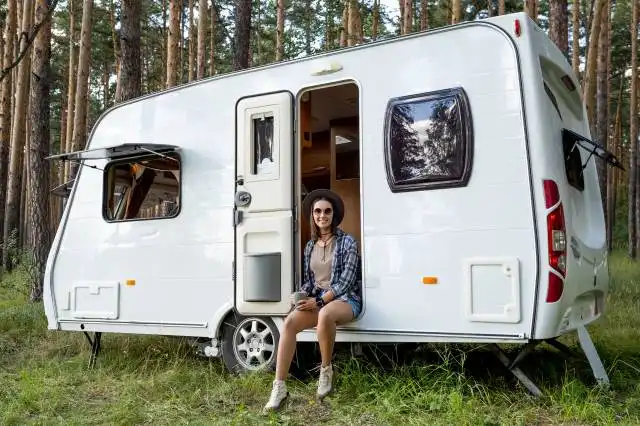Start a Catering Business
Turning Culinary Passion into a Profitable Business: A Peek into the World of Catering
| Updated


CATERING BUSINESS
Dive spoon-first into a catering business, a venture that promises to turn your culinary passion into a profitable enterprise. In this delectable world, your business provides food services to events such as weddings, birthdays, and corporate functions. You'll have the joy of tickling taste buds while operationally running a smooth mealtime ship. Just imagine: your menu, your kitchen-style command, and the satiated smiles of your clients—it's high time to prove the adage 'the way to a man's heart is through his stomach'!
Jump to Business Plan
RELATED BUSINESS IDEAS
Browse ALL Rental & Delivery Services Business Ideas
Discover Your Perfect Domain
Unlock the door to your online success with our hand-picked selection of premium domain names. Whether you're starting a new venture or rebranding an existing one, the right domain can set the tone for your digital presence. Browse through our curated list, each with its unique potential to enhance your brand's visibility and credibility.
CATERING MINI BUSINESS PLAN
This a quick reality check to help you identify the strengths and weaknesses of your business concept before you dive in.
Expected Percent Margins:
- Gross Margin: 40-60%
- Net Margin: 15-20%
Earnings Expectations
- Daily Earnings: $250 - $1,000 (Depends on event count and size)
- Weekly Earnings: $1,750 - $7,000
- Monthly Earnings: $7,000 - $30,000
- Annual Earnings: $84,000 - $360,000
Actions Needed to Achieve The Numbers
Menu and Pricing Strategy
- Menu Development: High margin items with good appeal should occupy 60-70% of your menu.
- Pricing: Base your prices on ingredient cost (aim for 30-40% food cost)
Marketing & Customer Acquisition
- Website/Blog: Keep an updated blog with recipes, demo videos to boost SEO and increase traffic
- Event Partnerships: Partnership with event planners, places of worship, local businesses.
Operations and Logistics
- Equipment: Invest in high-quality, long-lasting commercial cooking equipment
- Inventory Management: Plan your inventory carefully to minimise spoilage.
Staffing And Training
- Staffing: Hire trained chefs and waitstaff
- Training: Regular training to ensure high service quality
Cost Control
- Vendor Relations: Negotiate bulk discounts with food suppliers.
- Waste Management: Implement strict portion control to lower food waste.
Remember, this is a competitive business so making your catering company stand out with excellent service and a unique menu is key.
These estimations are generally representative and can significantly vary depending upon the location, event size, and personalized strategies.
NOT WHAT YOU HAD IN MIND? Here are more ideas



Browse ALL Rental & Delivery Services Business Ideas
Grab Your Business Website Name
Before you get caught up in the whirlwind of setting up your business, invest in a domain name. It's a small but significant step that lays the foundation for your brand and makes it easier for customers to find and trust you. Just like you wouldn't build a house without securing the land first, don't build a business without securing your domain name.
"Why? Can't that wait?" Here's why it shouldn't
Step 1: Determine if the Business is Right for You
Breakdown of Startup Expenses
When starting a catering business, it is important to understand the expenses associated with the endeavor. Start-up costs can include the cost of equipment, such as a commercial kitchen, catering supplies, and transportation. Additionally, you may need to pay for a business license, insurance, and marketing materials. It is important to research the cost of these items and to create a budget to ensure that you have enough money to cover the expenses.
Breakdown of Ongoing Expenses
In addition to the start-up costs, it is important to consider the ongoing expenses associated with running a catering business. These expenses can include the cost of food, staff, and other supplies. Additionally, you may need to pay for rent, utilities, and other overhead costs. It is important to research the cost of these items and to create a budget to ensure that you have enough money to cover the expenses.
Examples of Ways to Make Money
Once you have determined the expenses associated with starting and running a catering business, it is important to consider the ways in which you can make money. One way to make money is to offer catering services for events such as weddings, corporate events, and private parties. Additionally, you can offer catering services for restaurants, schools, and other organizations. You can also offer meal delivery services or catering packages. It is important to research the market to determine the best way to make money with your catering business.
Step 2: Name the Business
When naming your catering business, it is important to pick a name that is memorable and reflects the type of food you will be serving. It is also important to make sure the name is not already taken by another business. You can check with your local business registration office to make sure the name you want is not already taken. Additionally, it is important to make sure the name you choose is not too long or complicated, as this could make it difficult for customers to remember. You should also consider the domain name for your business website, as this should match the name of your business. Finally, if you are having trouble coming up with a name, you can also use a business name generator to help you come up with ideas.
Step 3: Create a Business Plan
Creating a business plan is an important step in starting a catering business. It should include a description of the business, the services you will offer, the target market, a marketing plan, and a financial plan. The business plan should also include a mission statement and goals for the business. Additionally, it should include a detailed budget for startup costs, ongoing expenses, and projected income.
Research Potential Customers
In order to create a successful business plan, it is important to research potential customers. This includes researching the demographics of the area, the types of events that are popular in the area, and the types of catering services that are already available. Additionally, research should be done on the types of food that are popular in the area and the types of food that are in demand. This research will help you determine the types of services and food that you should offer.
Research Potential Competitors
It is also important to research potential competitors in the area. This includes researching the types of services that they offer, their pricing, and their customer base. Additionally, research should be done on the types of events that they cater to and the types of food that they offer. This research will help you determine how to differentiate your business from the competition.
Develop a Marketing Plan
Once you have researched potential customers and competitors, you should develop a marketing plan. This should include a detailed plan for how you will reach potential customers, the types of advertising you will use, and the types of promotions you will offer. Additionally, your marketing plan should include a plan for how you will use social media and other online platforms to reach potential customers. Finally, your marketing plan should include a plan for how you will measure the success of your marketing efforts.
Step 4: Obtain Licenses and Permits
In order to start a catering business, you will need to obtain the necessary licenses and permits. Depending on the state or country you are in, the types of licenses and permits you need to obtain may vary. Generally, you will need to obtain a business license, a food service license, and a health permit. You may also need to obtain a liquor license if you plan to serve alcoholic beverages.
Cost of Licenses and Permits
The cost of licenses and permits will vary depending on the type of license and the state or country you are in. Generally, business licenses cost between $50 and $500, food service licenses cost between $100 and $500, and health permits cost between $50 and $200. Liquor licenses can cost anywhere from $100 to $1,000 or more.
Where to Obtain Licenses and Permits
You can obtain the necessary licenses and permits from your local government office. Depending on the state or country you are in, you may be able to apply for the licenses and permits online or you may need to apply in person. You may also need to provide proof of your business name, address, and other information.
Other Requirements
In addition to obtaining the necessary licenses and permits, you may also need to meet other requirements. These requirements may include obtaining a food handler's certificate, registering with the IRS, and registering with the state or country's department of taxation. You may also need to obtain a zoning permit if you plan to operate your business from a physical location.
Step 5: Secure Financing
When it comes to financing a catering business, there are a few different options. The most common types of financing include bank loans, venture capital, and crowdfunding. Bank loans are a great option for those who have a good credit score and a solid business plan. Venture capital is another option for those who have a great idea but need some extra capital to get started. Finally, crowdfunding is a great way to raise money for a catering business without having to take out a loan.
Applying for Financing
When applying for financing, it is important to have a well-thought-out business plan that outlines the goals of the business and how the money will be used. Additionally, it is important to have a good credit score and to be prepared to answer questions about the business. It is also important to research the different types of financing available and to compare the terms and conditions of each.
Managing Finances
Once the financing is secured, it is important to manage the finances responsibly. This includes creating a budget and tracking all expenses. Additionally, it is important to have a plan for repaying the loan or other financing. It is also important to set aside money for taxes and to have a plan for investing any profits back into the business.
Seeking Professional Advice
When it comes to financing a business, it is always a good idea to seek professional advice. This can be in the form of a financial advisor, accountant, or lawyer. These professionals can help to ensure that the financing is secured in the most efficient and cost-effective way possible. Additionally, they can provide valuable advice on how to manage the finances of the business.
Step 6: Choose a Location
When choosing a location for your catering business, there are several factors to consider. First, you need to decide if you want to operate out of a commercial kitchen or your own home. If you choose to operate out of a commercial kitchen, you will need to make sure that the kitchen is up to health code standards and that you have the necessary permits and licenses. Additionally, you will need to consider the cost of renting or leasing a space. You will also need to consider the amount of traffic in the area and the availability of parking for your customers.
Advantages and Disadvantages of Operating Out of a Commercial Kitchen
Operating out of a commercial kitchen has several advantages. For one, you will have access to professional-grade equipment and a space that is designed for food preparation. Additionally, you will have access to a larger kitchen and more storage space. However, operating out of a commercial kitchen can be expensive and may require you to pay for additional permits and licenses.
Advantages and Disadvantages of Operating Out of Your Home
Operating out of your home has several advantages. For one, you will be able to save money on rent and other overhead costs. Additionally, you will be able to work in a familiar environment and have more control over the quality of the food you serve. However, operating out of your home may require you to make changes to your home in order to comply with local health codes and regulations. Additionally, you may need to invest in additional equipment and supplies in order to properly prepare and serve food.
Step 7: Purchase Equipment
When starting a catering business, it is important to have the right equipment. Some of the most essential pieces of equipment include a commercial kitchen, refrigerators and freezers, ovens, food warmers, and chafing dishes. Depending on the type of catering business, additional equipment may be needed, such as a food processor, a blender, and a deep fryer. It is important to purchase the right equipment for the type of catering business being started.
Where to Purchase Equipment
When purchasing equipment for a catering business, it is important to shop around for the best prices. Many restaurant supply stores offer discounted prices on equipment, and online retailers may also have good deals. Additionally, used equipment may be an option, as long as it is in good condition. It is important to research the different types of equipment available and compare prices before making any purchases.
Cost of Equipment
The cost of equipment for a catering business can vary greatly depending on the type of equipment needed. Basic equipment such as refrigerators and ovens can range from a few hundred dollars to several thousand dollars. Additionally, some catering businesses may require additional equipment such as food processors, blenders, and deep fryers, which can add to the overall cost of equipment. It is important to research the different types of equipment needed and compare prices to ensure the best deal.
Maintenance of Equipment
Once the equipment has been purchased, it is important to maintain it properly. This includes regular cleaning and maintenance of the equipment to ensure it is working properly. Additionally, it is important to keep track of any repairs that may need to be made and to replace any equipment that is no longer functioning properly. Proper maintenance of equipment is essential to the success of a catering business.
Step 8: Market the Business
Once the business is up and running, it is important to market it in order to gain customers. There are many ways to market a catering business, such as word of mouth, social media, and print advertising. Word of mouth is one of the most effective ways to get the word out about the business. This can be done by talking to friends and family, as well as attending local events and networking with other business owners. Social media is also a great way to market the business, as it allows the business to reach a large audience quickly and easily. This can be done by creating a website, setting up a Facebook page, and posting regularly on Twitter and Instagram. Print advertising is another way to market the business, such as placing ads in local newspapers and magazines. This can be a great way to reach a more targeted audience.
Tips for Successful Marketing
In order to be successful with marketing, it is important to have a clear understanding of who the target audience is and what they are looking for. It is also important to create a unique and memorable brand that will stand out from the competition. Additionally, it is important to be consistent with marketing efforts, as this will help to build trust and loyalty with customers. Finally, it is important to track the results of marketing efforts in order to determine what is working and what is not. This will help to ensure that the business is using the most effective marketing strategies.
Step 9: Hire Employees
When it comes to hiring employees, it is important to consider the type of employees you need and the skills they should possess. It is also important to consider the number of employees you need to hire and the budget you have allocated for them. When hiring employees, it is important to make sure that they are reliable, trustworthy, and have the necessary skills to do the job. Additionally, it is important to make sure that the employees have the necessary certifications and licenses to work in the catering industry. Furthermore, it is important to make sure that the employees are familiar with the catering industry and have the necessary experience to do the job. Finally, it is important to make sure that the employees have the necessary knowledge and skills to handle customer service and food safety.
EXPLORE MORE CATEGORIES
Browse ALL Business Idea Categories
TAKE THE NEXT STEPS










